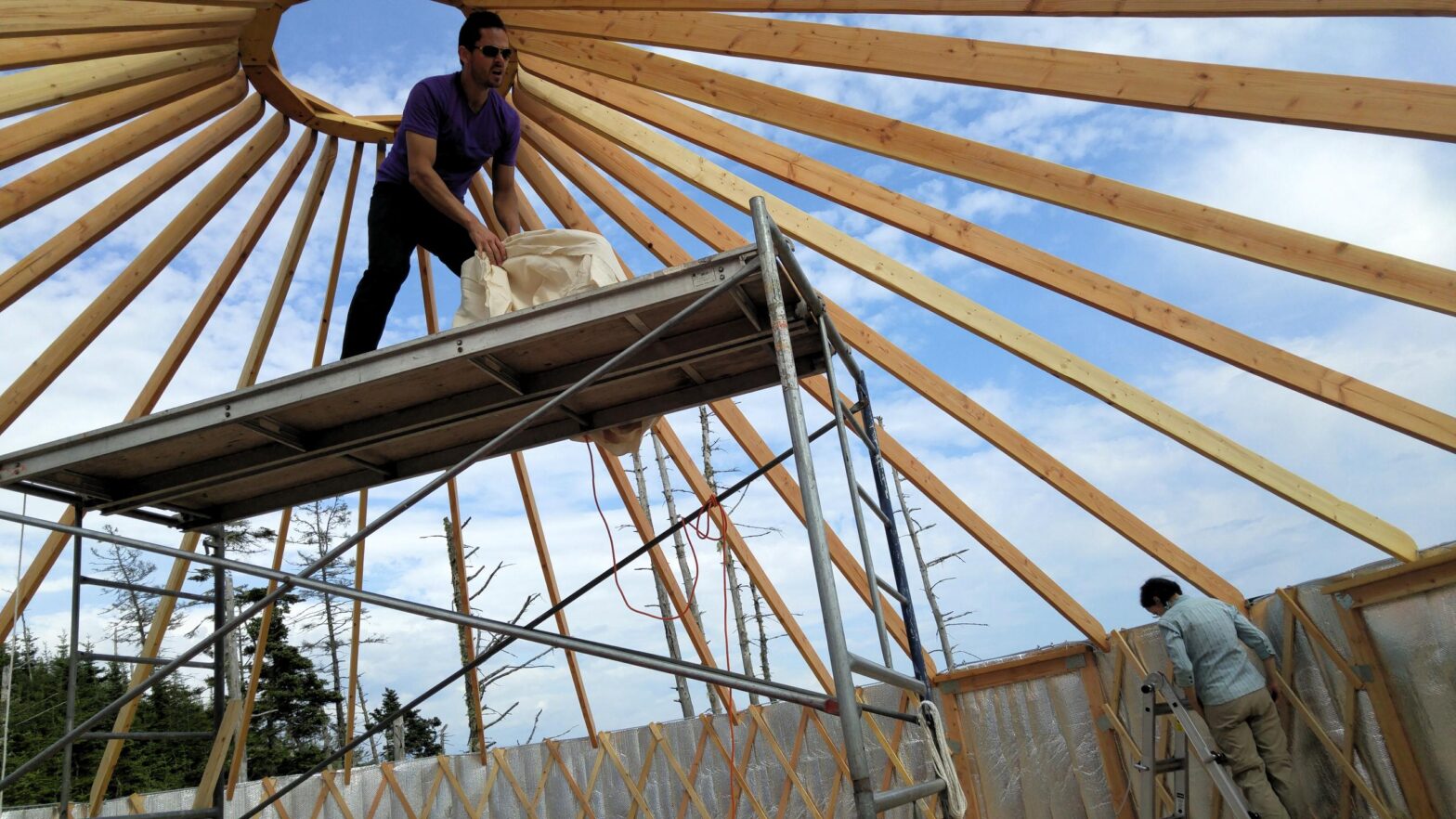Last Thursday, four of the owners of the island converged there to tackle the biggest task so far: build the yurt. Things started going poorly even before we got there.
Brian came down with a sinus infection and a 103 degree fever. He is the physically strongest of our foursome and also probably the most knowledgeable with construction. And even if he wasn’t, we needed four people to complete the project. Bailing on the trip wasn’t an option, so he rested for two days and came late.
Once we got there, a forklift at the storage place broke, making it impossible for us to pick up the yurt materials until Saturday. We were leaving on Monday.
Many other bad things happened. A 16′ long rafter fell and hit Lisa on the head. Our boat stopped working. Two Home Depots were each out of one critical piece for the scaffolding. The mosquitoes were the worst they’ve ever been there.
At each point in this crazy process, though, it was clear that it was still possible for us to complete the yurt. Not easy, but possible. Maybe we’d have to work a sixteen hour day, as we did on Saturday. Maybe we’d have to improvise. Maybe we’d only be able to get off the island for one meal as we did on Sunday.
Despite setbacks, frustrations, and so many mosquitoes that each of us accidentally ate some, no one ever brought up the possibility of failure. It wasn’t even an elephant in the room– we just never thought about it. As long as it wasn’t clearly impossible that we would fail, we assumed that we would succeed, and continued to push along that path as hard as we could.
Just before we absolutely had to leave, I put the final screws into the roof. We successfully put up the yurt. What would have happened if we allowed doubt to creep into our minds? Would we have worked so hard? Would we have actually finished?
This is the only way to get really monumental tasks done. Take the time to rationally assess what it’s going to take to get the task done. Decide whether or not you can do it. Once you decide that it’s possible, never revisit that question. You may fail, of course, but you may succeed. And like the yurt, it may have only been possible for you to succeed because you took the option of failure off the table.
###
Photo is an action shot of building the yurt. Didn’t get any shots of it finished because I didn’t have time. Next trip…
I’m currently on my Amtrak Residency! Can’t wait to go from New York to Oakland, CA in a couple days. Will be writing about that in the near future.
T-Mobile made a huge announcement today. The awesome plan I wrote about before now treats Mexico and Canada just like the US. So you have full LTE in both countries, and can make calls to and from them no matter where in North America you are. Awesome! Now we’ll have LTE at the island.

Leave a Reply